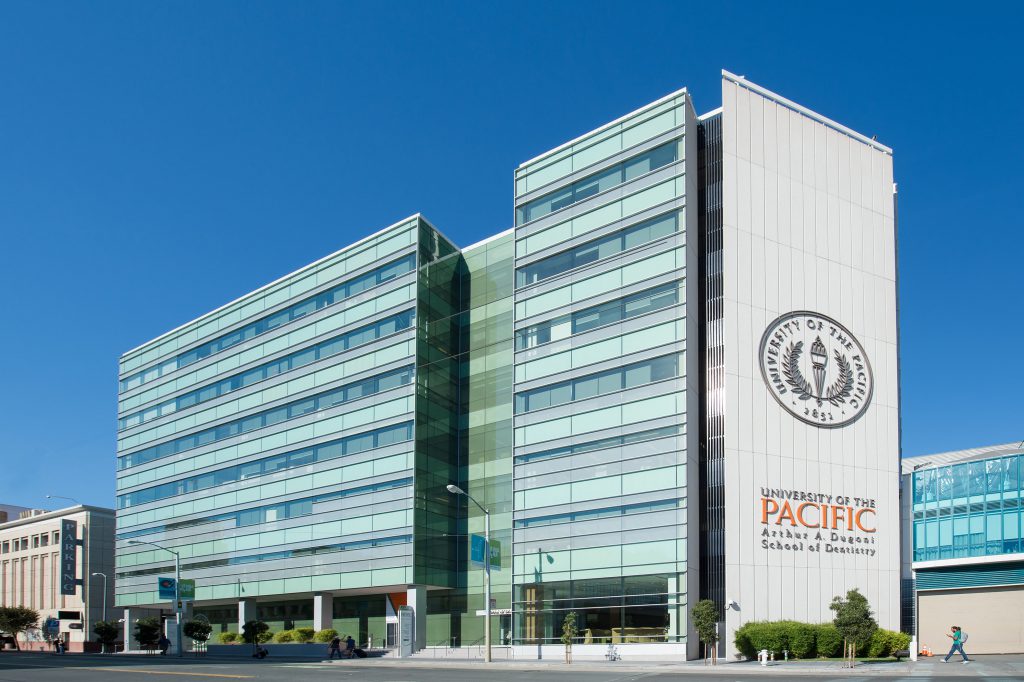
University of the Pacific, Arthur A. Dugoni School of Dentistry is expanding ways to train oral health care providers to care for underserved people with intellectual and developmental disabilities (IDD) from a wide range of backgrounds.
The school recently received a $50,000 grant designed to support care for Black, Indigenous, and People of Color (BIPOC) with IDD through new training activities for providers.
The grant funding will allow the Dugoni School to offer two seminars featuring 25 BIPOC adults with IDD as self-advocates. They will serve on panels and in group discussions, and also participate in patient simulations as part of an educational program for over 430 Dugoni School faculty, students, residents, and staff.
The purpose of the project is to offer educational resources, training, and mentorship to the dental school’s providers to increase their knowledge on how to advance access and inclusion for disabled people, navigate diverse languages and communication styles, and remain self-reflective and self-aware of unintentional or intentional racism and classism.
Patients with IDD often have higher rates of poor oral health because they may not always be able to manage their own oral hygiene or get the support they need to do so. People with disabilities are more likely to live in poverty, may rely on Medicaid or private insurance, and find it difficult to access quality care.
For IDD patients at the intersection of disability and other marginalized identities such as race/ethnicity, etc., there are compounding barriers to healthcare that can cause health inequities. This project is an opportunity for providers to receive additional training on how to pay attention to the disparities that BIPOC adults with IDD experience.
The funding was awarded by the WITH Foundation, which granted a total of $250,000 to five organizations across the country as part of a joint RFP with the American Academy of Developmental Medicine and Dentistry (AADMD).
The RFP provided a unique funding opportunity for organizations to support projects that address the intersections of racial equity and healthcare equity for adults with IDD. A secondary goal of the RFP was to foster new partnerships or significantly enhance existing partnerships between disability organizations, self-advocates, community organizations and healthcare providers.
The Dugoni School will partner with 25 self-advocates representing BIPOC adults with IDD from the Golden Gate Regional Center and Special Olympics of Northern California (SONC) to design and implement two seminars.
The Dugoni School of Dentistry has a long history of providing care to the underserved and training its students to care for people from all walks of life. The school’s dedicated Special Care Clinic in San Francisco has provided oral healthcare to thousands of people with IDD from across Northern California without reliable access to providers.
All dental students at the Dugoni School complete a rotation in the clinic to obtain valuable experience. Learning how to care for people with IDD is woven into many aspects of the dental education curriculum, and the school’s chapter of the American Academy of Developmental Medicine and Dentistry hosts supplemental activities and guest speakers to help educate the next generation of oral health care providers.
More recently, the Dugoni School hosted targeted COVID-19 vaccine clinics for people with IDD, partnering with the San Francisco Department of Public Health, San Francisco Mayor’s Office on Disability, Special Olympics of Northern California, and other groups. More than 4,600 members of the San Francisco community have received vaccines as part of the school’s outreach.


